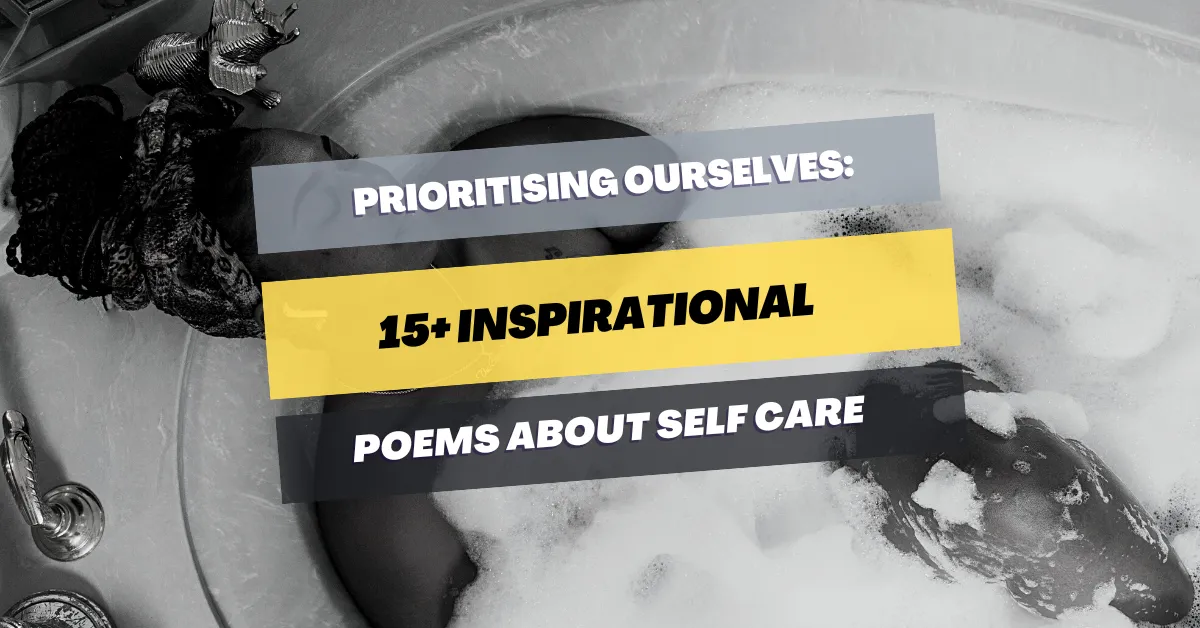15+ Inspirational Poems About Self Care: Prioritising Ourselves
Taking care of yourself is important for your physical, mental, and emotional well-being. In this post, we’ve compiled poems exploring the various facets of self-care.
From self-love and self-acceptance to relaxation and mindfulness, these poems offer a range of perspectives and techniques for incorporating self care into your daily routine.
Whether you’re looking for a little inspiration or just a reminder to prioritize yourself, we hope these poems will help you on your self-care journey. So sit back, relax, and let these words nourish your soul.
What Are The Best Self Care Poems?
Conclusion
Self-care is an essential aspect of maintaining both physical and mental health. These poems serve as a reminder to prioritize taking care of oneself and to not neglect our own needs in the pursuit of fulfilling responsibilities and achieving goals.
We hope that these poems inspire you to make time for self-care and to nourish your mind, body, and soul. Remember, you deserve to treat yourself with kindness and compassion.
Related To Poems About Self Care
Related Posts:
- 15+ Striking Poems About Eating Disorders: Hungry For Change
- 9+ Intoxicating Poems About Drugs: Another Hit
- 11+ Brave Poems About Hospitals And Clinics: The…
- 15+ Brave Poems That Deal With Anxiety: Soothing The Storm
- 11+ Devastating Poems About Pandemics: Words Of Comfort
- 15+ Scary Poems About Quarantine: Words From Within

